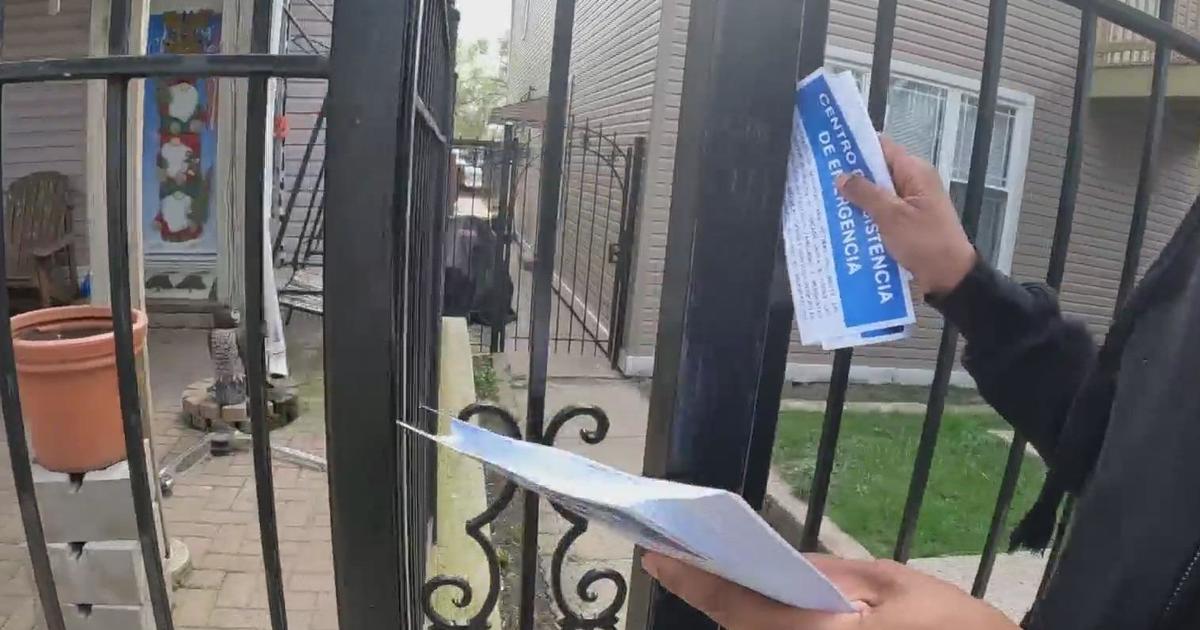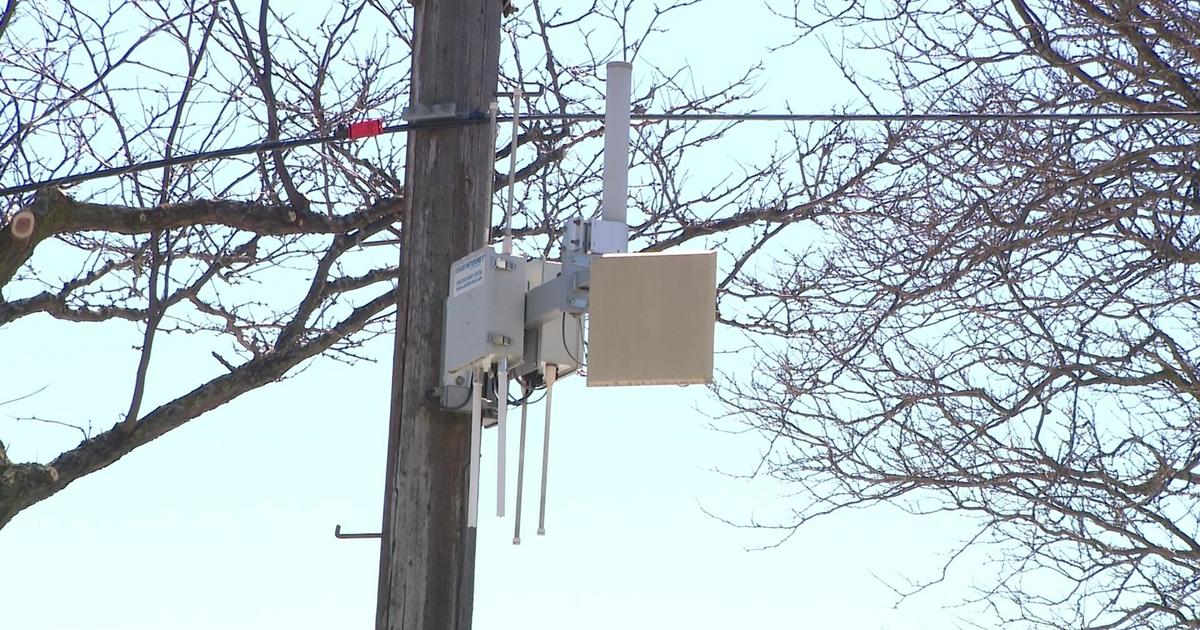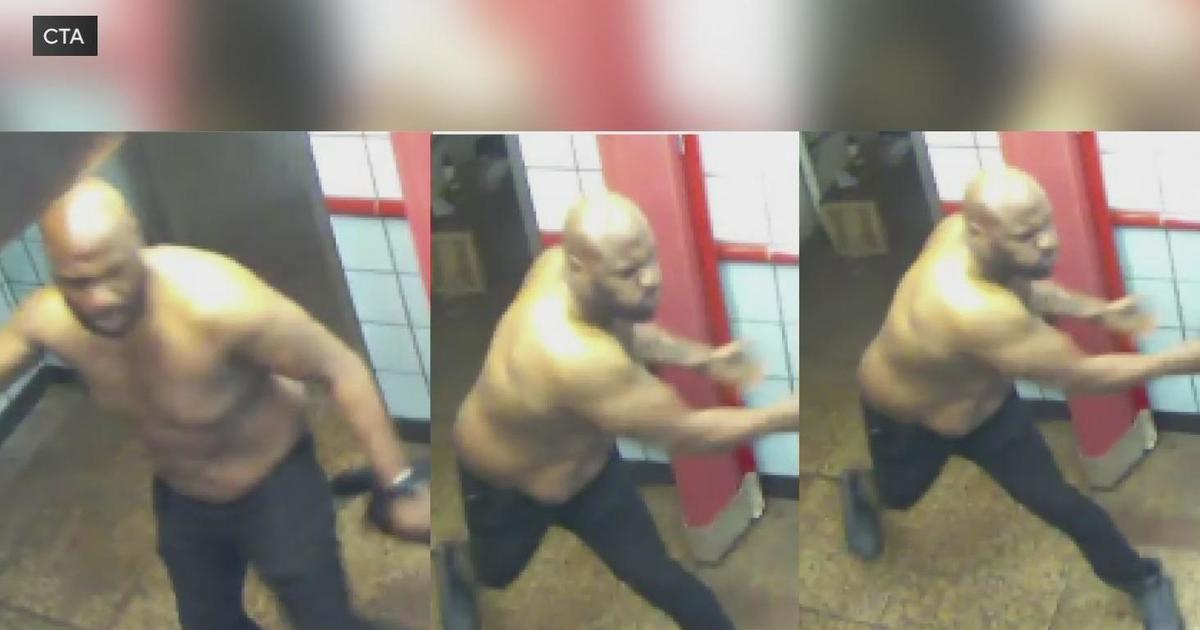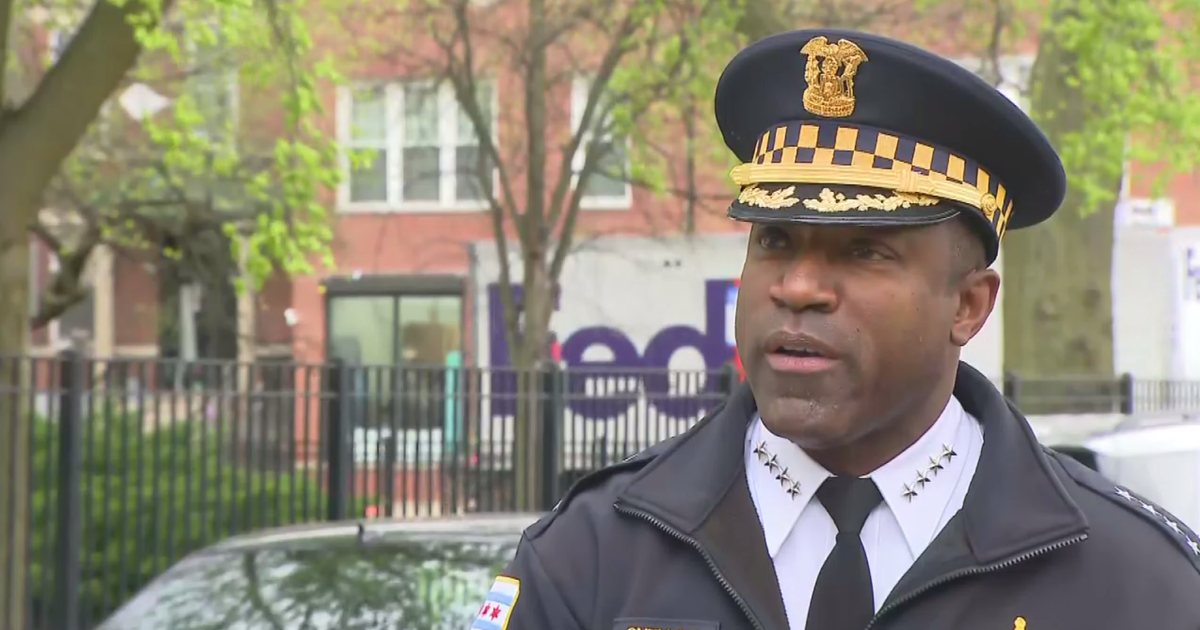City Argues Attorneys Cannot Bring Enforcement Action On CPD Consent Decree Over Search Warrant Tactics, Because Consent Decree Does Not Mention Them
CHICAGO (CBS) -- The City of Chicago on Wednesday challenged an enforcement action team of attorneys instrumental in the Chicago Police consent decree – arguing the police raids with which the attorneys took issue are not addressed in the consent decree and thus cannot be a basis for an enforcement action.
In August, the coalition of lawyers issued a 14-page enforcement action letter demanding an overhaul of the Chicago Police Department's search warrant process, saying its methods are unconstitutional. The letter demanded the department stop its pattern of "abusive" search warrant tactics or the team would take the city to federal court.
The letter outlined specific demands and repeatedly cited CBS 2's years-long investigation that exposed critical failures in every step of CPD's search warrant process. The reporting also uncovered how CPD's tactics disproportionately affect Black and Latinx communities.
In a subsequent motion filed in federal court last month, the attorneys asked a judge to intervene, saying the city never responded to the August enforcement action in the required 90 days.
[scribd id=495878422 key=key-BPD6xE7Pkl0ZE9Czu5fZ mode=scroll]
On Wednesday, the city did respond – arguing that the search warrant practices attorneys say are unconstitutional have nothing to do with the consent decree, so there is no standing for such an enforcement action.
The city's response Wednesday noted that city government and the CPD "acknowledge and appreciate the public's concerns about the manner in which search warrants have been obtained and carried out," and that measures to improve training and policies on search warrants have been undertaken and are ongoing.
But the city argued that a motion to enforce the consent decree is the wrong mechanism to command reforms on search warrants, because search warrants were not mentioned in the consent decree.
"While the Consent Decree addresses a myriad of CPD practices across numerous topics related to CPD's day-to-day law enforcement activities, the Coalition Motion does not—and cannot—identify any enforceable Consent Decree provision related to search warrant practices, as the Consent Decree does not address search warrant practices," the city response said. "The Coalition argues for an interpretation of the Consent Decree that would improperly expand its scope beyond its express terms. Because search warrant practices are not referenced within the four corners of the Consent Decree, the Court cannot grant the relief the Coalition seeks, and the Coalition Motion should be denied."
Craig Futterman, a University of Chicago law professor one of the civil rights attorneys behind the motion and previous enforcement action, accused the city of simply trying to shirk its obligations under the consent decree.
"The Lightfoot Administration's decision to continue to fight efforts to work with the community to address CPD's practice of violent, wrongful raids targeting Black & Brown families is deeply disappointing. The entire purpose of the CPD consent decree is to remedy the Department's pattern of excessive and discriminatory use of force, and to require genuine community engagement in that process," Futterman said in a statement. "The City's argument that the Decree somehow doesn't apply to discriminatory police violence when perpetrated inside the sanctity of the homes of Black and Brown families is not only morally offensive. It is yet another example of the CPD's efforts to do whatever it can to evade its responsibilities under the Decree—to resist change. If the Consent Decree has no power to address CPD's practice of bursting into homes of innocent families and pointing assault rifles at little kids, I don't know what purpose it has."
The city took a strict constructionist approach to the consent decree, saying its scope must be limited to what appears in its original text.
"(T)he scope of a consent decree must be discerned within its four corners, and not by reference to what might satisfy the purposes of one of the parties to it," the city response quoted a 1971 precedent from United States v. Armour & Co.
Search warrants were not mentioned anywhere in the 799 paragraphs of the 2019 federal court ordered consent decree, which aimed to stop CPD's excessive use of force, the city response said. The city response said that if the parties involved in the consent decree had wanted it to include policies about search warrants, "they would have included express terms covering them," but they did not, and that can't change now.
The city also said the coalition of attorneys was trying to determine the CPD's compliance with the consent decree in a "piecemeal fashion" by focusing on search warrants – which the city argued "does not align with the spirit or purpose of the Consent Decree."
The purpose of the consent decree, the city said, was to address" programmatic, long-term reform across the department" – with a focus on such issues as use of force, body cameras, interactions with youth, community policing, impartial policing, and accountability.
The coalition in its enforcement action referenced a paragraph from the consent decree about the use of force and accountability for it – reading in part, "CPD's use of force policies and training, supervision, and accountability systems will be designed, implemented, and maintained so that CPD members . . . act at all times in a manner consistent with the sanctity of human life," the city said. But the city said that paragraph does not get into any specific police practices such as search warrants, and thus, no specific police practices can be basis of an enforcement action around it.
Returning to the strict constructionist interpretation of the consent decree, the city argued that no court could make an order based on the handling of search warrants because the consent decree says nothing about them.
"Given that the Consent Decree contains no express provisions addressing search warrants, the Coalition is unable to articulate what it is asking the Court to 'enforce' to remedy the Coalition's assertions of 'violations of the Decree and federal law,'" the city response said. Instead, acknowledging that the Consent Decree does not 'specifically refer' to search warrants, the Coalition asks generally for the Court's 'intervention' to 'produce a remedy.' As discussed above, the Court cannot enforce a contract provision that does not exist, and therefore, the Court does not have the authority to create and order a remedy."
In issuing the enforcement order, the coalition argued that indeed search warrants and wrong raids did fall under the scope of the consent decree.
Further, the city argued, the coalition brought forth the enforcement action without going through all the "procedural prerequisites" – arguing that the consent decree does not require the city to provide a written response, but rather, a "meet-and-confer" process.
The response noted the city, the Illinois Attorney General's office, and the coalition of attorneys were having discussions about another topic – specifically how the CPD handled issues related to protests and unrest in the spring – and the coalition prioritized those discussions over any other topic such as search warrants even after issuing the enforcement letter because they were more pressing at the time.
For that reason, the city argued, the enforcement action would be "premature" even if it were allowed.
The action criticized how, in more than a dozen cases uncovered by CBS 2, officers failed to do basic checks on tips from confidential informants before obtaining and executing search warrants on homes. The letter uses these cases to demonstrate how police then raided the wrong place, using force by pointing guns at innocent families and children, and traumatizing them.
"CPD is still continuing to break into families' homes, point guns at little kids," Craig Futterman, a civil rights attorney with the Mandel Legal Aid Clinic at University of Chicago who's also behind the Coalition's latest enforcement action against the city, said in August. "CPD continues to treat kids, Black and Brown families, like they're less than."
The Coalition behind the enforcement action is comprised of Futterman; Sheila Bedi, an attorney with the Bluhm Legal Clinic and professor at Northwestern's Pritzker School of Law; and Karen Sheley, director of the ACLU of Illinois Police Practices Project.
The attorneys said the officers' actions connected to wrong raids – and the police department's failure to hold them accountable -- violates the decree and the Constitution.
"You can't have this, a consent decree in Chicago that's supposed to address patterns and practices of police violence, and then the same old thing keeps going on," Futterman said in August. "You are violating this decree, you are violating the Constitution. You're violating the law. Stop."
The demands sent in August criticized how, in dozens of cases exposed by CBS 2, officers failed to do basic police investigative work to verify tips from confidential informants before obtaining and executing search warrants. In each case, officers simply took the word of informants and raided the wrong homes of innocent people, leaving them traumatized.
CBS 2's analysis of CPD data also found glaring disparities where officers execute search warrants the most. During a four-year period, CPD targeted mostly Black and Latino communities when executing search warrants, while they rarely served warrants in predominantly white communities.
Nearly every wrong raid victim CBS 2 interviewed as part of its years-long investigation is a person of color.
This includes Anjanette Young, the victim of the now infamous botched raid by the Chicago Police. Body camera video revealed the social worker was naked when police burst into her home and handcuffed her.
In January, the attorneys went on to ask a judge to intervene on the grounds that they had requested city officials meet with them to discuss reforms, but "the City (had) refused to respond."
That lack of response, they wrote, is yet another example of the city "shirking its Consent Decree obligations."
In its response Wednesday, the city also argued that the CPD was already taking action on the issue of search warrants and wrong raids despite their not having anything to do with the consent decree – including a public acknowledgement of how Young was mistreated, and a daylong City Council hearing about Chicago Police search warrant practices – among other things.
In a related development this week, members of City Council are pushing for stricter search warrant reforms with a new city ordinance named after Young.
The Anjanette Young Ordinance was not formally introduced as planned during the City Council meeting on Wednesday, though it has been placed on the city Clerk's legislation website. It will now be introduced on Friday.
If passed, it would become city law.
The ordinance would force the CPD to add the reforms and accountability measures to its policy. It is sponsored by five council members: Maria Hadden (49th), Sophia King (4th), Jeanette Taylor (20th), Stephanie Coleman (16th), and Leslie Hairston (5th).



